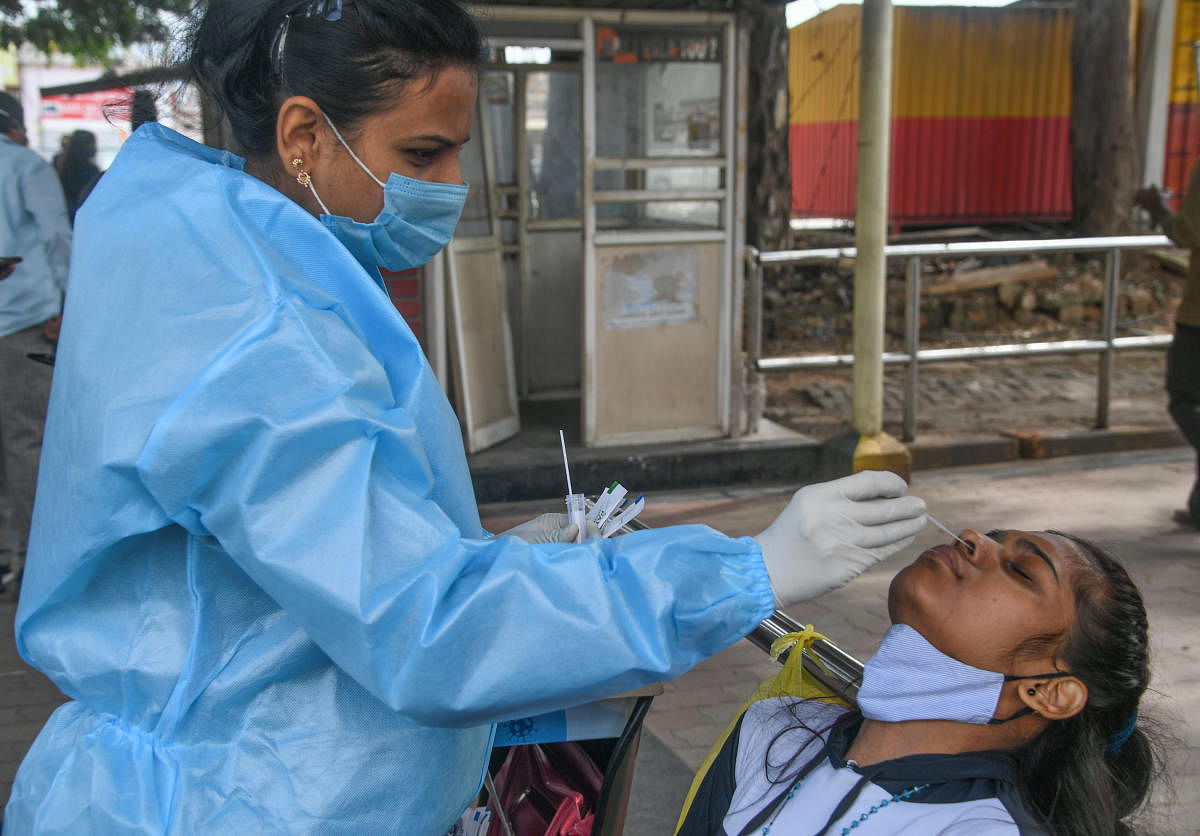
The BBMP has reached out to the civil aviation ministry and the Indian Council of Medical Research (ICMR) for clarity on the effectiveness of the rapid test adopted at KIA.
This after the state’s third Omicron patient, a passenger from South Africa, tested Covid positive a day after testing negative at KIA (Kempegowda International Airport).
The 34-year-old passenger was tested on arrival at the KIA with the Abbott ID NOW Rapid RT-PCR test on December 1. He had tested negative. However, within a span of 24 hours, he tested positive with a conventional RT-PCR test.
By then, he had already come in contact with 20 people, including the cab driver who ferried him home from the airport.
There was another case of a 60-year-old passenger from Germany, who tested positive at the airport. A subsequent (regular RT-PCR) test at Bowring and Lady Curzon Hospital, however, showed that the passenger is negative.
BBMP special commissioner (health) Dr K V Trilok Chandra said he has reached out to the Ministry of Civil Aviation and the ICMR. He will meet ICMR officials on Monday to bring the cases to their notice.
“We are awaiting confirmation from ICMR on the sensitivity of the test. Probably on Monday, we’ll hear from them and then take a call on the issue. On Saturday, I had also been in touch with the Ministry of Civil Aviation. They referred us to the ICMR as it is them who certify these technologies,” Dr Chandra
said.
On a question about the possibility of adopting institutional quarantine for passengers till their conventional RT-PCR results come, Health Secretary T K Anil Kumar said, “We’re going by the ICMR protocol, which is the highest technical body. They asked for these machines (Abbott) to be used, for quick results.”
“However, we’ve told the airport authorities to use three other sets of express test machines, which they’ve been told to procure. These tests are much cheaper than Abbott ID tests (Rs 3,000): Thermo Fisher Accula (Rs 1,500), Tata MD 3 Gene Fast/Tata MDXF (Rs 1,200), and Cepheid Gene Expert (Rs 2,750). We’ve been orally informed that this week, they will be deployed,” he added.
Abbott Laboratories claimed on its website that the positive agreement (sensitivity) of the test is 94.7% and negative agreement (specificity) 98.6%.
An Abbott spokesperson in a statement over email on Tuesday (in response to DH's request for a comment on Sunday) said, “ID NOW is a fast, reliable and widely available molecular point-of-care device, that provides Covid-19 testing where and when it's needed most. Urgent care clinic studies show ID NOW test performance of ≥94.7% positive agreement (sensitivity) and ≥98.6% negative agreement (specificity), as compared to lab-based PCR reference tests. When proper sample collection and handling are used, ID NOW is a reliable tool in near patient settings and can help reduce further spread of Covid-19.”
Dr Naveena J, professor of microbiology at Jayadeva Institute of Cardiovascular Sciences and Research, said, “Reasons for false negative in Abbott ID NOW could be due to improper sample collection, which is called pre-analytical error. In Abbott ID NOW, the viral load should be around 125 genome equivalents of SARS-CoV-2/ml of the sample to flag a positive result, whereas RT-PCR requires 30-35 genome equivalent of SARS-COV-2/ml of sample.”
Dr C N Manjunath, state nodal officer for Covid-19 testing, said, “We need to check if the swab sample collection was done properly. Early in the incubation period, one can test negative. Here, it is just a span of 24 hours. If the test is done two to three days apart, there can be a difference in viral load.”
Check out DH's latets videos:
